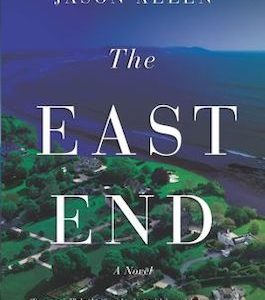My entire childhood I hoped to write books, and entered the publishing industry after college on the now humorous assumption—humorously wrong, and also humorously correct for reasons I did not then understand—that being an editor would help me realize that dream. I became a full-fledged book editor in 2007, after the assumed unpaid internship and then editorial assistantship. The last twelve years, during which I have had the opportunity to steep myself in the brain-product of many talented writers, have been a period of academic study in the discipline of the novel. I often found it very difficult to write when I was so immersed in other writers’ creative worlds—I felt like I wasn’t being the best editor I could be, the editor the author deserved, if I was simultaneously engaging in my own creative endeavors. There were periods where I pushed writing aside; there were years-long stretches when I “quit.” These spans eventually decomposed into very bad feelings—doldrums I could only steer my craft out of by returning to my craft.
Now, at age 35, I am publishing my debut novel, The Seven or Eight Deaths of Stella Fortuna—what I hope is my debut novel, at least, and not my only novel, but as an editor I know not to assume these things. I am not what the literary world considers a spring chicken; it took me a long, long time to find the space within my editorial career to get myself to this point as a writer. I don’t regret my foolishness of embarking on an editorial career. It took me much longer to write a publishable book than my younger self would ever have been able to forgive, but the book I did write is much, much better than it would have been if I hadn’t had the benefit of my editorial education to apply to its creation
I’ve also had a double-benefit from attempting both disciplines at once: not only has my work as an editor informed my craft as a writer, but my work as a writer has informed my craft as an editor. I’ve circled around my own ideas of what makes a good editor—what the balance between correctness and art should be; what the moral responsibility to the artist is vis a vis the moral responsibility to the reader; when it is worthwhile to stake one’s reputation and when one should remember life is too short to fight for commas or reversion clauses. I admit that even after all this time I don’t feel fully confident in my own tenets; I periodically experience vicissitude on what I believe is Right or Wrong for an editor (whose entire identity, of course, hinges on their being Always Right). Here, though, are the points I would stake my reputation on
1. The book belongs to the author. The words aren’t mine, they are Maxwell Perkins’s, but I wholly subscribe to them. The final call on a book’s content and execution should always belong to the author, and editors should rein in their egos with this motto in mind. Certainly I have been deeply frustrated during an edit when an author stubbornly refused to hear points I was making. But being a writer myself, I understand the knee-jerk reaction to having one’s Deeply Personal Art critiqued. I have learned from the authors whom I most enjoy editing how to harness my better angels when I am being edited myself, how to tamp down the emotional volatility that blooms the instant someone offers critical feedback, and remember that my crit partner or whoever is trying to help me.
2. But still—the book belongs to the author. So ultimately, if I don’t agree with those well-intentioned folks, I stubbornly stand my ground. …Even as I remember my own frustration with authors I’ve edited who have done the exact same. In my more youthful editorial days, I fought back righteously when my good advice wasn’t heeded. I also assumed I was right; that being the editor meant I was the expert on what made the book a book, and that my guidance should take precedence over the instincts of the creator themselves. Over the years I have grown so embarrassed of my decisive editorial work those early years, and grateful to the authors who gently tolerated my interference and helped me develop a more nuanced understanding of how much should be edited and when. Now, I set up my edits as suggestions, and if the author rejects my suggestions—having, however, demonstrated thoughtful attention and not just bad-tempered or pride-wounded dismissal—I let it lie and do not fight them. Their vision for their book is the most important thing and I should protect it, even if I don’t completely agree with it. Although privately, of course, I regret that the author is hurting their work by not realizing I am Always, Always Right.
3. An editor should interrogate their instinct to change something. So many of us editors come from similar educational backgrounds that we sometimes become confused about what sounds good versus what is familiar. Real art is often created on the fringes of what is already accepted. To develop into a good editor, one must learn how to avoid making everything sound like what they’ve internalized is “good writing.” However, there are some hard and fast rules for what no author should be allowed to do. For example:
4. You lose narrative authority with a reader every time you switch your book’s perspective from one character to another, or worse, from past to present tense, or absolutely most heinous of all, from first person to third person and back. An editor should do what s/he can to enlighten stubborn and/or lazy authors to the damage they are doing their work by not finding other, perhaps more difficult but likely more effective, ways to tell their story. The only novel I can think of that is an exception to this rule is The Seven or Eight Deaths of Stella Fortuna, which absolutely needed to be narrated from a mixed first and third person point of view, and which absolutely needed to move occasionally from past tense into present tense. If you read the book you will see this is incontrovertibly true, there was simply no other way the story could have been managed. Excuse me for a moment while I clear my throat.
5. No book needs a dream sequence. They are a cheat way to convey personal information about a character, and they are usually tedious to read. Real people hardly have revelatory dream sequences in real life, so why do fictional characters have them so often? Authors should be discouraged from including them. Yes, I have a dream sequence in my own novel. It was absolutely essential to the plot. What’s your point? That brings me to my last rule.
6. All editorial rules must be mutable. There must be room for flexibility so each choice an editor makes—from whether how hard to push on contractual clauses—can be made with moral integrity and without misgivings. This means, unfortunately, there is no moral cane to lean on; each judgment call needs to be made independently. The artistic space is a tender and vulnerable one, and sometimes human emotions—which are not external to the point-of-sale object, the Book, but rather fully integrated into it—must be taken into account despite the supposed business nature of the industry or the supposed punctiliousness of the discipline.
***


















